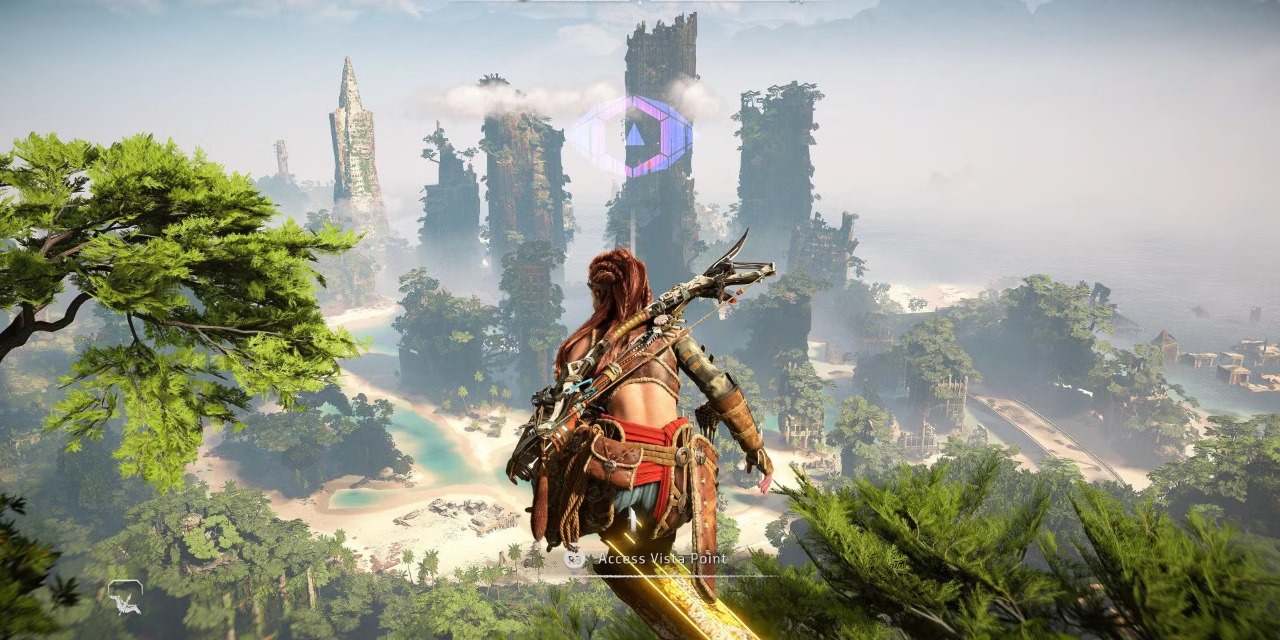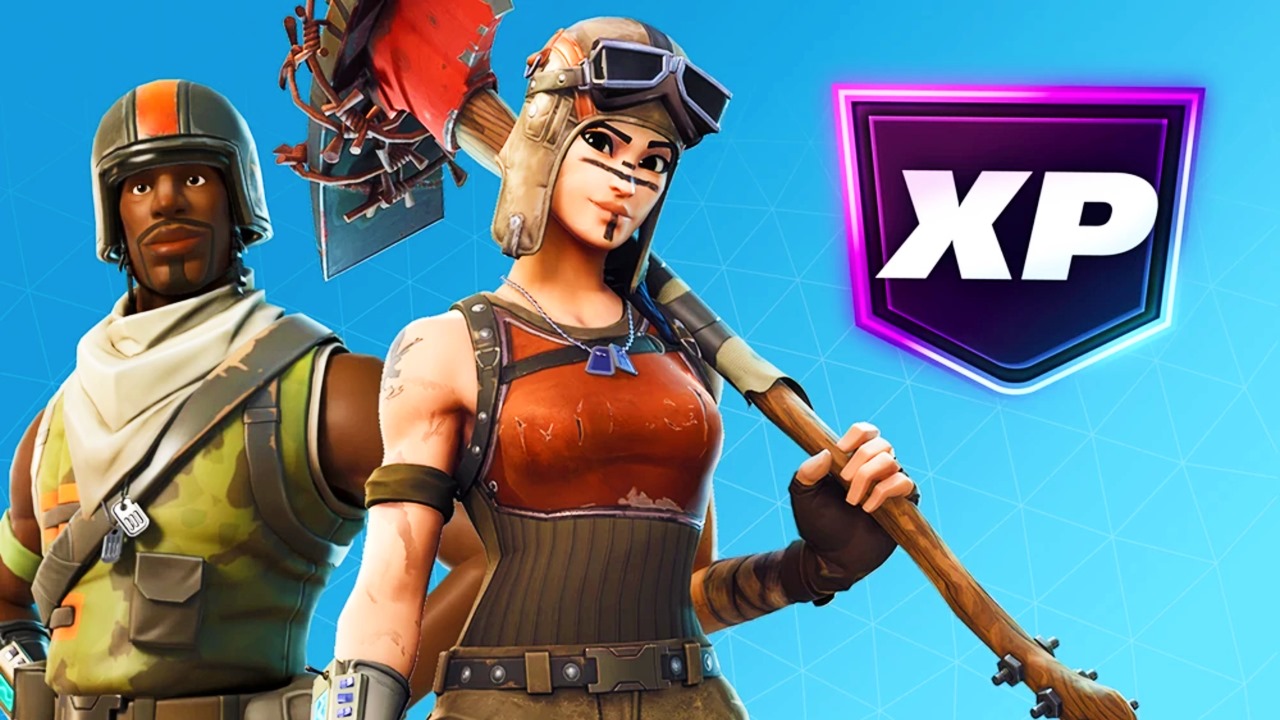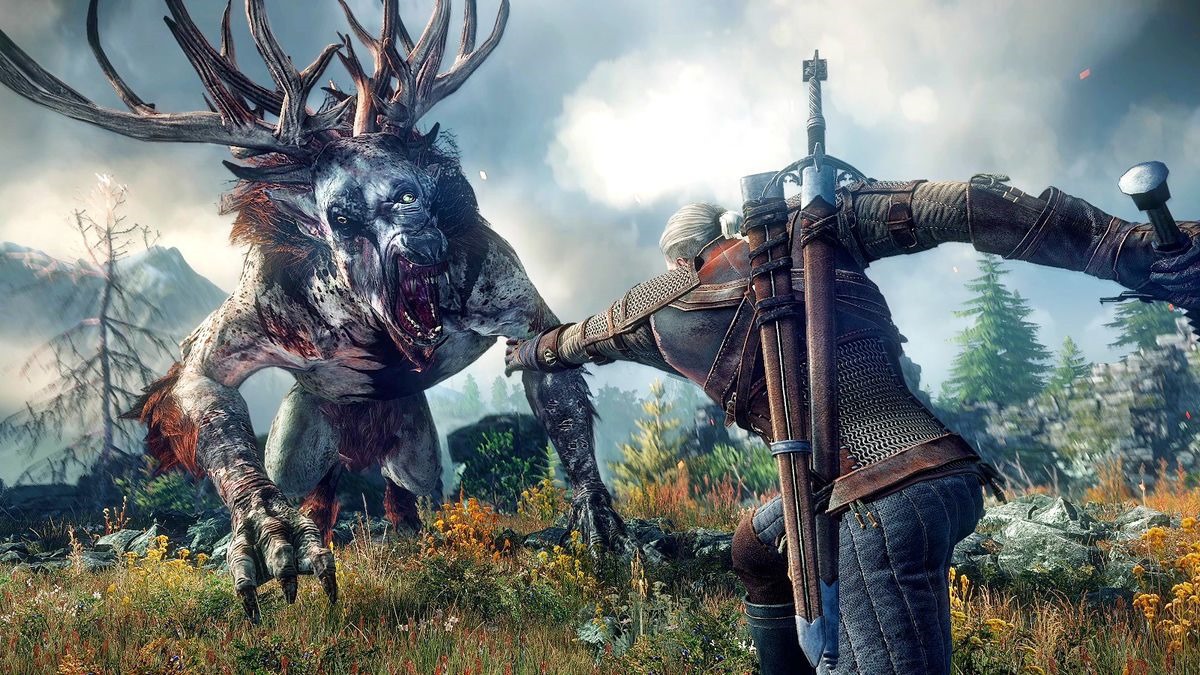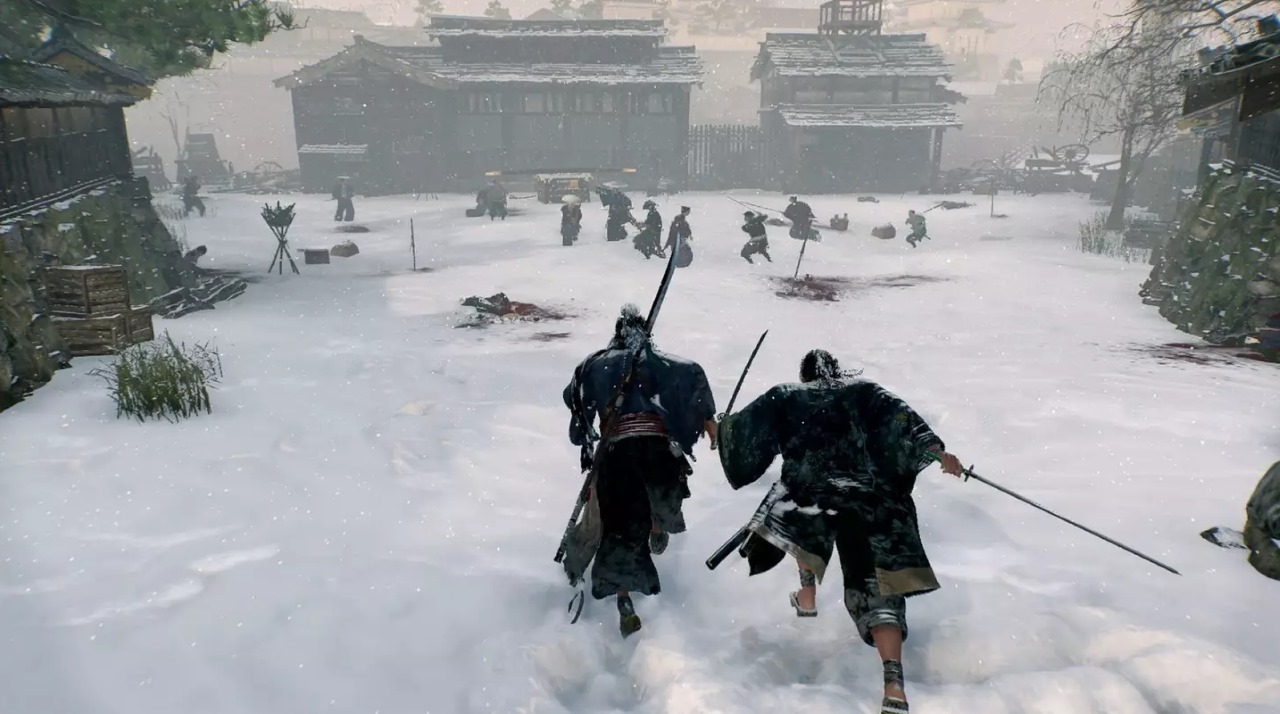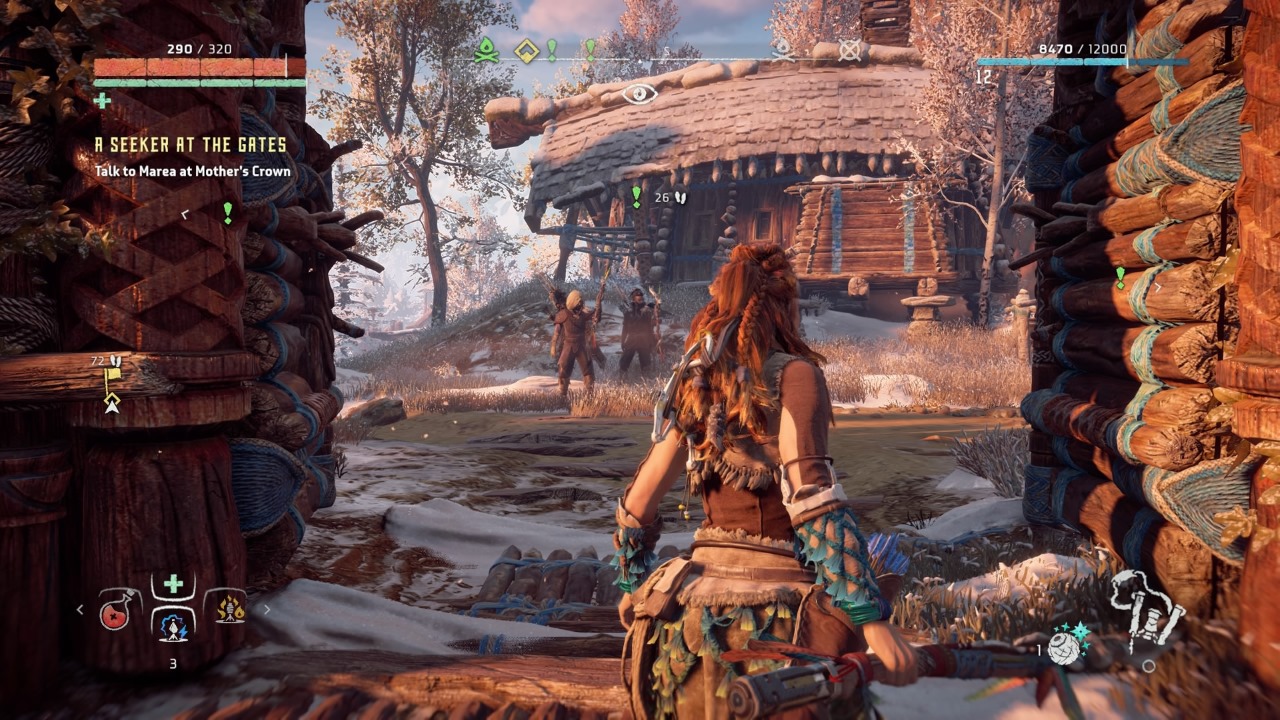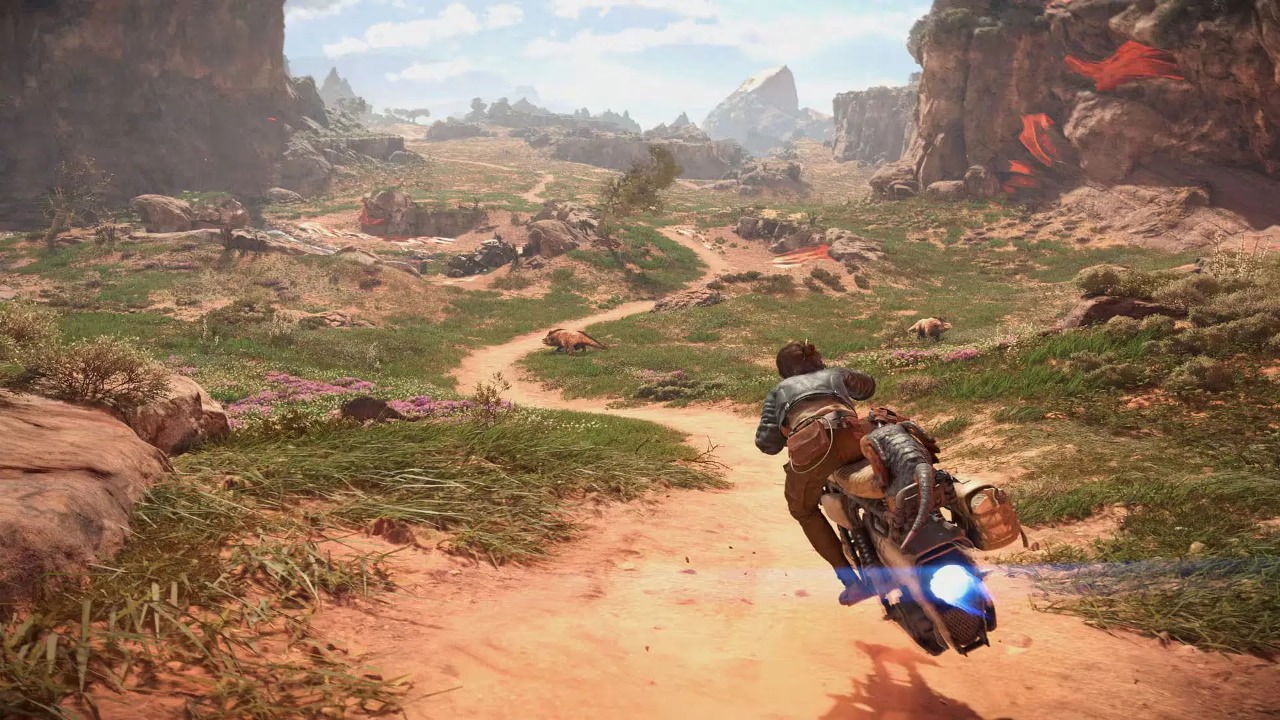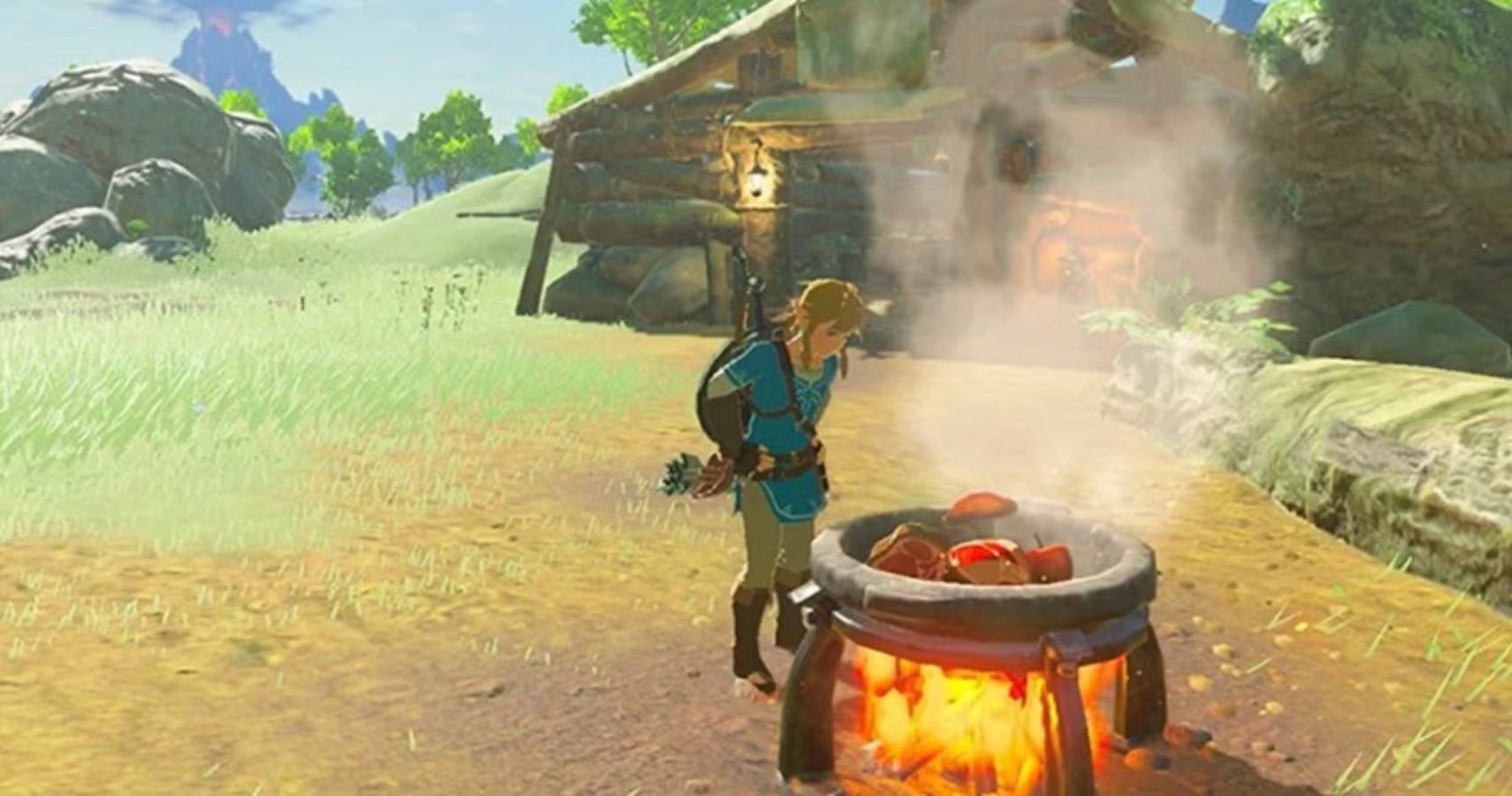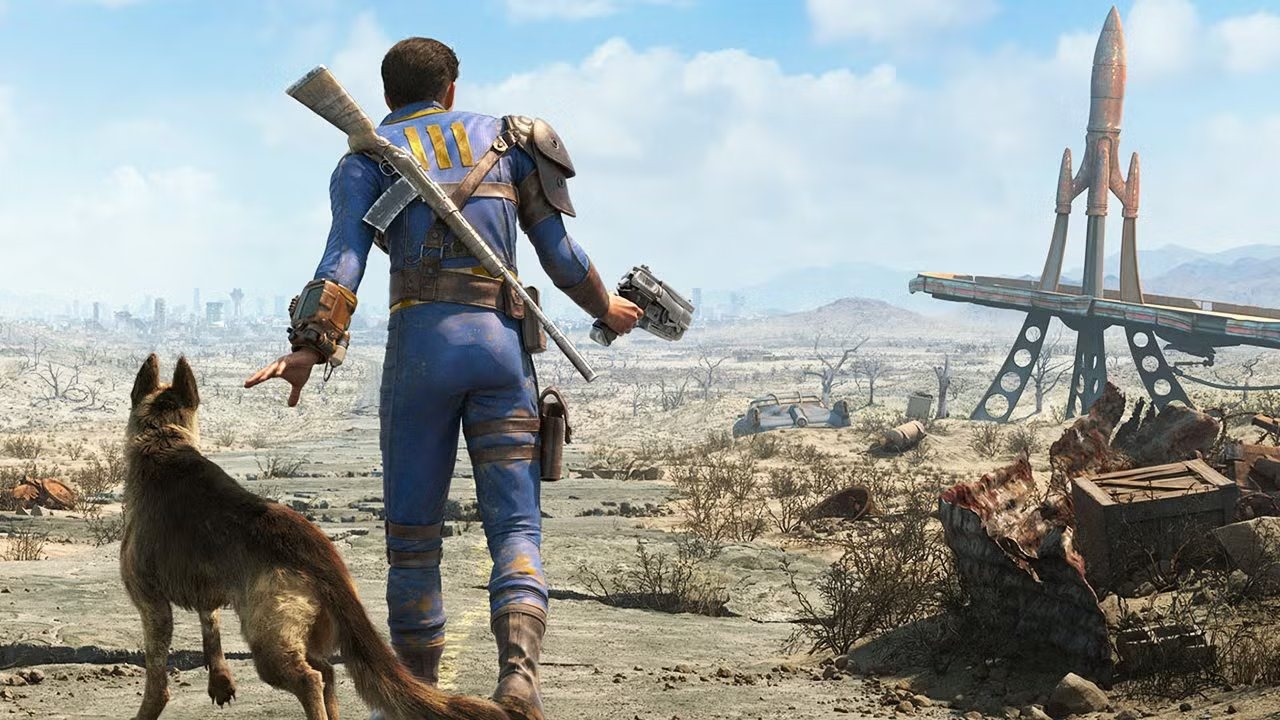Open-world RPGs are massive by design—expansive maps, nonlinear stories, side quests, hidden areas, crafting trees, and countless enemies. They’re also built to reward persistence. But here’s the catch: not all players want to take the slow scenic route. If you’ve ever found yourself stuck on a low level while your enemies outscale you or wished you could unlock powerful gear faster, you’re not alone. Learning how to level up quickly isn't about exploiting the system—it's about understanding it.
Leveling up efficiently transforms the entire RPG experience. It unlocks core abilities sooner, makes tougher areas accessible earlier, and allows you to experiment more freely with the game's mechanics. Whether you’re trying to beat a game on a higher difficulty or just want to keep pace with your more obsessive gamer friends, gaining XP faster is a goal worth optimizing. But how?
The methods aren’t universal. Every game has its own flavor. Skyrim rewards exploration and skill use, The Witcher 3 favors narrative progression, Elden Ring embraces brutal combat as your rite of passage. Yet beneath the surface, there are shared principles—intelligent questing, efficient combat, and smart time management—that can dramatically boost your XP rate regardless of the title.
This isn’t just a set of general tips. This is a deep dive into every system open-world RPGs offer and how to make them work in your favor. From fine-tuning your character build to taking advantage of co-op mechanics, here's a comprehensive guide on how to level up faster and smarter in any open-world RPG.
Understanding Experience Points (XP) Systems
Experience Points, or XP, are the invisible currency of growth in nearly every RPG. They quantify progress and act as the backbone of leveling systems, allowing your character to become stronger, more versatile, or better equipped to handle the evolving challenges of the game world. But not all XP systems are created equal. Understanding how they function under the hood is step one in mastering faster leveling.
Some games use linear XP progression—each level costs the same or slightly more XP than the last. Others use exponential scaling, where each new level costs dramatically more XP, slowing down late-game leveling unless you find better ways to farm. Elden Ring, for example, drastically increases the Rune cost of each level, while Horizon Zero Dawn maintains a steady pace, subtly encouraging broader exploration.
XP isn’t just handed out for enemy kills. Many open-world RPGs award XP through multiple channels: quest completion, exploration, crafting, cooking, discovering lore items, unlocking achievements, and even dialogue choices. Genshin Impact and Skyrim are especially notorious for rewarding players who interact with the world’s systems beyond combat.
There’s also the matter of scaling. Some games adjust XP gains based on enemy level or player level. In these cases, farming weaker enemies may become useless past a certain threshold. Others introduce soft-caps or diminishing returns when you farm one activity too often. XP multipliers tied to difficulty settings, event bonuses, or temporary consumables also play a massive role and are often overlooked.
In short, XP isn't a monolithic system. Each game has its own rules, and players who take time to read the XP mechanics—whether through tooltips, menus, or experimentation—are almost always better off. Once you understand where the majority of your XP is coming from, you can begin to optimize your entire playstyle around it.
Choosing the Right Character Build for Faster Progression
Your character build is more than just a preference—it's a commitment that heavily influences how efficiently you’ll level up. While it's tempting to build a jack-of-all-trades, such flexibility often comes at the cost of power and speed. Specializing early can be the difference between grinding for hours and cutting through enemies like butter.
When a game offers class systems, like in Dragon’s Dogma or Divinity: Original Sin 2, it's crucial to pick a class that aligns with rapid XP gain. DPS-focused classes often mow down enemies faster, while tankier builds might survive longer but kill slower. Some games even offer XP bonuses for stealth kills, critical hits, or multi-kills—features you can build around if you pay attention during character creation or re-spec stages.
Skill trees are another area where focused investment pays off. Instead of spreading your points thinly across multiple trees, go deep into the ones that enhance your leveling strategy. Want to grind combat XP? Maximize attack skills, area damage, or speed buffs. Going for exploration XP? Look for passives that increase map reveal, movement speed, or stamina.
Certain builds naturally lend themselves to quicker XP accumulation. Summoner builds in games like Path of Exile or Diablo IV can handle multiple enemies at once, essentially multiplying your XP gain. Similarly, builds with healing or support elements can sustain themselves longer in extended combat sequences, reducing downtime.
And don’t ignore gear synergy. Your skills, weapons, and armor should work in unison. For example, a build based around critical strikes should also equip gear that boosts crit chance or crit damage. XP gain items, whether permanent or temporary, can further complement this.
In games where you can change your class or reallocate points (for a cost), don’t be afraid to adjust your build mid-game if you find a faster leveling approach. A good build doesn't just make you stronger—it makes everything faster.
Smart Questing: The Core of Speed-Leveling
If there's a single system that every open-world RPG leans on heavily for XP distribution, it's quests. But while most players know that quests offer big XP payouts, they don’t always realize how dramatically the type, order, and timing of quests can affect their leveling speed.
Start by prioritizing high-value quests. Main story missions often offer larger XP rewards, but so do faction quests, loyalty missions, and quests tied to world-changing events. In The Witcher 3, side quests related to major NPCs often grant as much XP as main quests. And in Skyrim, joining a faction like the Thieves Guild or Dark Brotherhood can unlock entire chains of lucrative missions.
Avoid the trap of low-XP fetch quests unless they’re clustered together. Instead, look for quests that have multiple objectives in a single area. Planning your route to stack and complete several missions at once saves time and maximizes XP per minute. Games like Fallout 4 reward this kind of multitasking, especially when you’re dealing with Radiant Quests or repeatable missions.
Time-sensitive quests are another hidden XP source. Some games give daily, weekly, or limited-time quests that refresh regularly and offer boosted XP. In Genshin Impact, these commissions are often the most time-efficient way to level up. Even if you’re tight on time, doing these first ensures steady progress.
Quest difficulty also plays a role. Some RPGs offer tiered rewards based on the level gap between you and the mission. Accepting a slightly tougher quest—especially if your gear compensates—can be much more rewarding than sleepwalking through low-level content.
Lastly, pay attention to quest-based choices. Some RPGs grant additional XP for picking specific dialogue paths, persuading NPCs, or avoiding combat. These bonuses often stack up over time. Remember, it’s not just about finishing the quest—it’s about how you finish it.
Combat Efficiency: Mastering Fights for XP
Fighting isn't just about surviving—it's about squeezing as much XP from every encounter as possible. In open-world RPGs, combat is often the most consistent way to earn experience, and mastering it can dramatically accelerate your leveling journey.
Start with enemy selection. Not all foes are created equal. Some offer exponentially more XP than others. In Elden Ring, elite enemies and mini-bosses are XP goldmines, while mobs of weaker foes are often not worth the effort unless you can chain-kill them quickly. Learn which enemies drop the most XP per minute of combat and prioritize them.
Next, consider combat styles. Games that reward stealth kills, headshots, combo chains, or elemental weaknesses allow you to level faster if you adapt your fighting strategy accordingly. In Assassin’s Creed Valhalla, for example, assassinating enemies undetected grants bonus XP, and certain skill trees amplify this further.
Don't overlook area-of-effect (AoE) damage skills. If you’re in an area with clustered enemies, being able to wipe out groups at once not only saves time but often results in XP bursts. Magic builds or heavy weapon users typically excel here. If the game supports it, upgrading abilities that stun or crowd-control enemies allows you to control the battlefield and maximize damage output without taking hits.
Companions can also play a critical role. Games like Dragon Age: Inquisition let you build party synergy that enhances your kill speed. A well-coordinated team can clear mobs faster and more safely, keeping your XP income steady with less risk of death or downtime.
And don’t forget consumables. XP boost potions, combat enhancers, or temporary stat boosts can make a huge difference, especially when farming. Time your toughest fights to coincide with these boosts for exponential returns.
Mastering combat isn’t just about flair—it’s about understanding systems, reading the battlefield, and making every swing count.
Grinding Done Right: Where and How to Farm XP
Let’s talk about the unavoidable beast of the RPG world—grinding. Everyone does it, but not everyone does it well. Grinding is often seen as a tedious chore, but if approached strategically, it can be one of the most rewarding and time-efficient ways to rack up experience.
First off, don’t just grind for the sake of it. Know where and why you're grinding. The best grinding spots aren’t always where the toughest enemies live—they’re where the most XP per minute can be harvested. That means quick kill times, short respawn intervals, and proximity to safe zones or fast travel points. Dragon’s Dogma players, for instance, swear by Bitterblack Isle not just because it’s dangerous, but because its dense monster population and tight corridors are perfect for farming.
Timing is everything. Many games include specific times of day or weather conditions where enemy spawns increase, or special variants appear with boosted XP rewards. Games like Xenoblade Chronicles are filled with these time-dependent nuances, and those who exploit them get significantly more XP for their time.
It's also smart to layer your grinding. Combine repeatable side missions or enemy bounties with grinding routes. If your game has daily enemy-hunting tasks, weave those into your loop. That way, you’re not just killing mobs—you’re completing objectives and stacking bonuses.
And then there’s respawn awareness. Know your route. Are enemies respawning fast enough to keep your kill chain alive? Is the area too spread out? Have you out-leveled the mobs to the point where XP is negligible? If so, it’s time to move on. Many games cap your XP if enemies are below your level—this is especially brutal in The Elder Scrolls Online, where grinding outdated content becomes completely inefficient past a point.
Finally, don’t overdo it. The XP curve in many RPGs is designed to punish diminishing returns. If you find yourself getting less XP for the same effort, the game might be signaling that it's time to shift strategies. Grinding can be effective—but only when done with precision and a timer in hand.
Exploration-Based XP: Discovering the World While Leveling Up
While combat and quests tend to steal the spotlight in XP farming, exploration is often the secret MVP in open-world RPGs. From discovering hidden caves to stumbling upon ancient ruins, games increasingly reward the curious traveler. The trick? Knowing how to get the most XP out of every mile you travel.
Map discovery bonuses are a common mechanic. In Skyrim, simply walking into a new town or dungeon often grants a chunk of XP—especially if you’re using a modded system like SkyUI that tracks it. In Assassin’s Creed Odyssey, scaling synchronization points not only reveals new territory but also grants XP, encouraging verticality and distance.
Exploration also ties into micro-systems like lore collecting, relic hunting, and puzzle-solving. Games like The Legend of Zelda: Breath of the Wild hide Korok seeds in the oddest places, subtly rewarding players with inventory upgrades and side content that slowly adds up. These may not be direct XP gains, but they unlock progression mechanics that help you advance more smoothly and unlock further XP routes.
Then there are dynamic world events—random encounters that pop up as you travel. In Red Dead Redemption 2 or The Witcher 3, these moments reward attentiveness and risk. Help a traveler, stop a robbery, fight off a monster ambush, and boom—bonus XP without even opening your quest journal.
Hidden dungeons, challenge areas, or puzzle towers also tie into exploration-based XP. The key is to treat every unexplored spot on your map like a question mark worth answering. If the game supports fast travel, do the hard work of unlocking every point early—you’ll often earn XP just for reaching them.
Exploration isn't just wandering—it’s targeted curiosity. The more the world opens up, the more systems you can tap into to accelerate your leveling. It turns what used to be downtime into prime-time XP gain.
Game Systems That Reward XP (Outside Combat)
Open-world RPGs are evolving, and with them, so are the ways you can earn XP. Gone are the days when leveling was limited to swinging swords or finishing story missions. Now, many games integrate progression into every mechanic—from crafting to cooking to dialogue. The smart player uses these systems not just for survival, but for leveling up faster.
Let’s start with crafting. In games like Horizon Forbidden West or Monster Hunter: World, crafting isn’t just functional—it’s profitable. Forging weapons, upgrading armor, and brewing potions can yield experience, especially when done in high volumes. Combine that with harvesting rare materials or completing crafting-based challenges, and suddenly your forge becomes a leveling engine.
Cooking systems also play a surprising role. In Final Fantasy XV, preparing meals can grant stat boosts, but also XP—especially when linked to culinary achievements or recipe discovery. Some titles reward you for simply experimenting in the kitchen, making it one of the more flavorful paths to progression (pun intended).
Reputation or favor systems—often tied to specific regions or NPCs—can also be XP sources. Cyberpunk 2077 includes Street Cred as a parallel leveling system that opens up new gear and missions. Interacting with vendors, completing tasks, or even selling rare loot can gradually raise your reputation and, in some cases, your level.
Dialogue choices and roleplaying mechanics shouldn’t be overlooked either. Games like Mass Effect, Outer Worlds, and Baldur’s Gate 3 grant XP for successful persuasion, intimidation, or deception. Investing in Charisma or Social skill trees pays off not just narratively, but mechanically.
Lastly, achievements, challenges, and journals often carry XP rewards. Unlock a new codex entry? XP. Complete a milestone in a collection? XP. These add up over time and reward players who engage deeply with the game world rather than just running through it.
The more systems you touch, the faster you level. So open every menu, talk to every NPC, and tinker with every tool the game gives you—you might be surprised what grants XP.
Maximizing XP Through Equipment and Gear
Gear isn’t just about damage or defense—it can significantly influence how fast you gain experience. Many RPGs include weapons, armor, trinkets, or accessories that boost XP gain, either passively or through specific conditions. Learning to gear up for XP gain is like equipping your character with a turbocharger.
The most obvious type of gear is XP-enhancing equipment. In Final Fantasy XII: The Zodiac Age, the Embroidered Tippet doubles XP earned. In Destiny 2, seasonal artifacts or Ghost mods can passively increase experience from specific activities. These are non-negotiables for efficient leveling and should be prioritized in your inventory.
Then there’s synergy. If your character is built for stealth, find gear that buffs stealth damage and also grants XP bonuses for undetected kills. If you rely on spells, equip rings or staves that not only increase magic power but offer XP boosts when casting in succession or killing with elemental attacks. You’re not just building for combat—you’re building for XP optimization.
Many open-world games also include set bonuses. Equipping three or more pieces from the same set might grant you a hidden XP bonus or increased stats that indirectly speed up combat, leading to more kills and faster gains. In The Division 2, some armor sets give experience boosts for completing missions or headshots, rewarding accuracy and efficiency.
Temporary items like scrolls, potions, or consumables can further spike XP gain. These are best saved for high-reward quests, boss fights, or grinding sessions. Stack them with gear bonuses and you’re looking at exponential XP returns within a short time frame.
Finally, don’t hoard your gear upgrades. Keeping your equipment up-to-date ensures you can fight higher-level enemies and take on harder quests, both of which give better XP. Holding onto outdated gear just because it has a minor XP bonus might slow your overall progress in the long run.
The right gear makes leveling not just faster—but easier, safer, and far more rewarding.
Multiplayer & Co-op Leveling Tactics
Open-world RPGs have increasingly embraced multiplayer and co-op features—not just for social engagement, but as a means to accelerate progression. If you’re the kind of player who doesn’t mind teaming up, multiplayer can give your leveling pace a serious edge.
Let’s begin with co-op campaigns. Games like Elden Ring and Dark Souls III allow you to summon allies into your world—or join theirs—to take down bosses, complete zones, or handle areas you’re not quite ready to solo. While some games restrict XP sharing for summoned allies, others reward both players handsomely. The key is to be proactive. Don’t wait to get summoned—go help others. It’s often faster, safer XP, especially when running familiar areas.
Guilds, factions, or online communities often come with daily tasks or challenges that are shared across members. In The Elder Scrolls Online, completing daily pledges or zone events with a group provides massive XP bonuses—sometimes even scaled up with group size or performance. That’s not just more fun—it’s more efficient.
Some RPGs implement XP scaling based on difficulty when in multiplayer. Borderlands 3, for instance, offers mayhem modes that scale enemy difficulty and rewards in tandem. Bringing a group not only makes the challenge manageable but ensures you’re not wasting precious XP opportunities.
There’s also power-leveling—a term often frowned upon but incredibly effective when done right. If your game permits a high-level player to carry you through high-level zones (think Diablo IV or Monster Hunter Rise), you can collect XP at an absurd rate without putting yourself at extreme risk. It's controversial, yes—but undeniably efficient.
Shared buffs, companion passives, or group-based XP multipliers are another layer of benefit. If your co-op partners equip gear that increases group XP gain—or if you enter XP-boosted areas together—the synergy can result in ridiculous growth rates.
Multiplayer isn't just about friends—it’s about fast lanes. Use them wisely, and you'll cut your leveling time dramatically.
Time-Limited Events and Seasonal Bonuses
If you’ve ever logged into your favorite RPG and seen a banner announcing a “Double XP Weekend,” you’ve already encountered one of the most powerful leveling tools in the genre: time-limited events. These are temporary windows of opportunity where developers crank up XP rewards—and smart players take full advantage.
Events vary by game. In Genshin Impact, for example, events tied to festivals or updates often provide mission chains that grant huge XP rewards, rare materials, and primogems. Missing these events can set you back weeks in terms of leveling speed. Likewise, Destiny 2 runs Iron Banner weeks and seasonal passes that reward consistent XP farming in specific modes.
The trick is planning ahead. Keep track of event calendars posted by developers or community hubs. If you know a bonus XP event is coming, save your hardest quests, boss fights, or large batches of bounties for that period. The compounded XP gain during events can sometimes double or triple what you'd normally receive.
Consumables that stack with events can turn you into a leveling machine. Use XP potions, scrolls, or group boosts during events for exponential gains. This stacking is allowed in most games and turns high-efficiency into high-profit.
Some events even offer unique gear or XP-boosting artifacts that persist beyond the event. Participating doesn’t just help in the moment—it can have lasting impacts on your character’s progression speed. The Division 2 often ties these perks into global events or league challenges that last for days or weeks.
For those with limited playtime, events are your secret weapon. Logging in just a few hours during a boosted event can outperform an entire week of normal gameplay. They’re designed to reward bursts of activity—and when it comes to leveling, that’s exactly the kind of boost you want.
Avoiding Leveling Mistakes That Waste Time
Sometimes the key to leveling up quickly isn’t what you do—it’s what you don’t. Wasting time in open-world RPGs is easy. They’re designed to distract you with shiny objects, meaningless tasks, and low-value engagements. The trick is learning to spot these traps early and steer clear.
Let’s start with low-level zones. Once you’ve out-leveled an area, continuing to farm enemies or complete quests there is XP suicide. Many games implement diminishing returns, where enemy kills drop from 100 XP to 5 XP—or worse. Move on. Even if the loot is decent, the lost XP opportunity isn't worth it.
Another common pitfall is excessive crafting without XP returns. Sure, it’s tempting to max out your potion inventory, but if your game doesn’t reward XP for crafting, you're spending time that could be used grinding enemies or clearing quests. Focus on XP-gaining systems unless you’re crafting to support your combat build.
Over-exploring is a hidden time sink. Yes, open-worlds are meant to be wandered—but if your goal is faster leveling, wandering aimlessly isn’t your friend. Only detour if there’s clear XP value: a dungeon, a new quest giver, or an event. Otherwise, stick to your leveling path until you’ve built enough strength to explore with a purpose.
Ignoring temporary boosts or failing to track your XP efficiency is another big mistake. Use in-game logs or even third-party tools to measure how much XP you’re getting per session. If a route or method drops below efficiency thresholds, adapt quickly. Grinding the same inefficient loop out of habit is one of the biggest time-wasters in RPGs.
And finally, avoid constant re-specs. While it’s fun to tinker, every time you overhaul your build, you slow down momentum—especially if it takes a few hours to adapt to your new style. Focus on builds that support fast leveling, then experiment once you’ve reached a comfortable power level.
Avoiding mistakes is just as important as finding the right strategy. Efficiency isn’t just doing more—it’s wasting less.
Strategic Time Management for Fast Leveling
The most underrated XP tool in any RPG isn’t your sword—it’s your schedule. How you organize your play sessions has a direct impact on how fast you level. You don’t need to play more hours—you need to play smarter hours.
Start each session with a clear plan. Before diving in, spend five minutes checking your active quests, map locations, and available events. What can be stacked? What can be completed on the same route? Layering your objectives saves travel time and increases XP per minute.
Prioritize high-XP content first. If you only have an hour to play, don’t wander the countryside killing wolves. Knock out a faction quest, dungeon run, or world event. Save the grindy filler content for long sessions where you can multi-task or play more casually.
Daily and weekly resets should guide your calendar. Most modern RPGs now include recurring XP-rich tasks. Genshin Impact, ESO, Destiny 2—they all revolve around structured loops that reward consistency. Make these the pillars of your leveling plan. They're often the highest XP-per-minute content available.
Track your XP per hour. You don’t need spreadsheets—just take mental notes. Did this route net two levels in 45 minutes? Did that boss fight eat up half an hour for barely any progress? Be willing to cut unproductive activities and optimize your routine.
Even downtime matters. Inventory management, crafting, and NPC interactions should be batched into short sessions rather than interrupting your leveling flow. Schedule them between high-XP tasks, not during.
And don’t forget rest. Some games, like Final Fantasy XIV, offer rested XP bonuses for logging out in inns or cities. If you’re going offline, make sure you’re in a rest zone to start your next session with a boost.
Time isn’t just a resource—it’s the resource. Respect it, and you’ll find yourself hitting high levels with less grind than you thought possible.
How Different Open-World RPGs Handle Progression
Not all open-world RPGs play by the same rules. If you’re trying to level up faster, you need to adjust your strategy based on how each game approaches progression. Some games reward grinding, others punish it. Some hand you XP for walking five feet, others make you earn it in blood.
Take The Witcher 3. Here, quest XP is everything. Combat rarely grants much experience unless you're severely underleveled. So trying to grind enemies is a waste of time. Instead, knocking out side quests, contracts, and exploration markers—especially ones close to your level—is your best bet.
Now look at Elden Ring. This game thrives on enemy kill XP, and it wants you to suffer for it. Killing enemies is your main source of Runes (XP), and dying makes you lose them. Here, smart grinding spots like Mohgwyn Palace, or boss runs with Rune boosts, are essential to quick leveling.
Then there’s Skyrim, where XP is tied to skill use. The more you swing swords, pick locks, or sneak around, the more you level. This unique system rewards spamming actions—leading players to jump against walls or pickpocket endlessly to boost specific skills.
Genshin Impact, by contrast, limits XP gain through daily resin and activity caps. Here, planning is everything. You only get so many high-XP chances per day, so missing them puts you far behind. Logging in consistently, optimizing domains, and using XP books are your main progression routes.
Cyberpunk 2077 splits XP across street cred and character levels. That means you need to balance criminal activity with main quests to stay on top. Ignoring one side slows your access to perks, gear, or game features.
Each game has its own progression philosophy. The faster you adapt, the faster you rise. One-size-fits-all strategies don’t work here—learn the rules of the world you’re in, and bend them in your favor.
And there it is—a no-fluff, deep-dive manual on how to level up faster in open-world RPGs. Not with cheap exploits, but with genuine strategy, adaptive thinking, and knowledge of the systems hiding beneath the surface. Whether you're new to the genre or a returning vet, these tactics will keep your progression sharp, your sessions efficient, and your character a force to be reckoned with.

